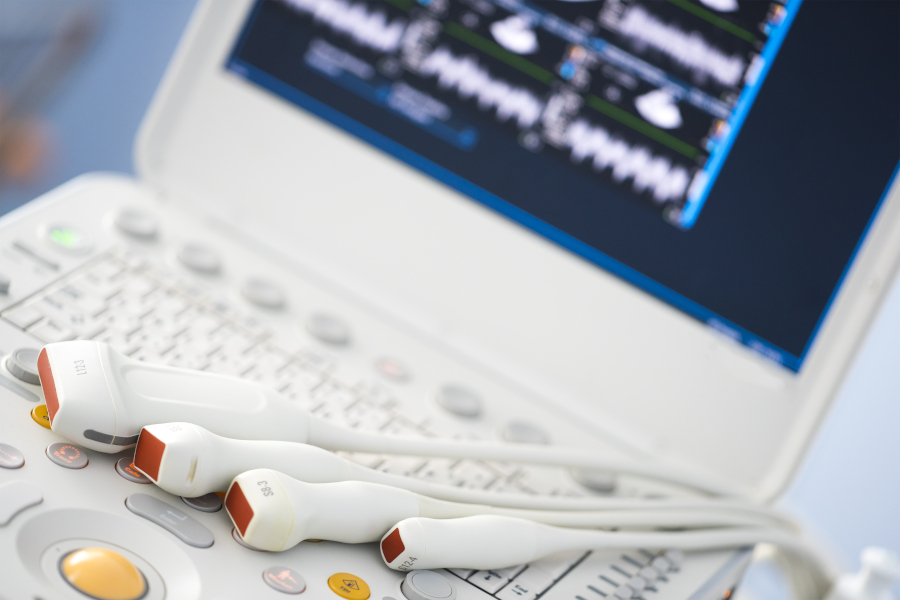
Ultrasound technology has revolutionized prenatal care, providing valuable information into the development and well-being of the fetus. There are understandable concerns about the safety of ultrasound scans for both the pregnant woman and the baby. In this article, we will address these common concerns and provide information on the safety of ultrasound technology during pregnancy. Understanding the benefits and risks associated with ultrasound scans can help expectant parents make informed decisions and alleviate any apprehensions they may have.
Ultrasound technology utilizes high-frequency sound waves to create images of the fetus and the internal structures of the pregnant woman. The ultrasound machine emits sound waves that bounce off the tissues and organs in the body, producing echoes that are “picked up” by a receiver and then converted into visual images. These images help healthcare providers assess fetal growth and development and detect any potential physical abnormalities.

Ultrasound scans are considered safe during pregnancy. The procedure is non-invasive and does not involve exposure to ionizing radiation, such as X-rays. Unlike X-rays or CT scans, which use potentially harmful radiation, an ultrasound examination uses sound waves that are generally considered safe. The procedure is painless and does not pose any known risks or side effects to the mother's health.
Routine ultrasound scans, such as those performed during the first and second trimesters, have been widely used for decades without any deleterious effects. Healthcare providers are required to follow carefully developed guidelines and protocols to ensure the appropriate and safe use of ultrasound technology.
One of the main concerns about ultrasound scans relates to the potential impact on the developing fetus. Extensive research has been conducted to evaluate the safety of ultrasound for the fetus, and the consensus is that diagnostic ultrasound scans performed by trained professionals are considered safe.
The energy levels used in diagnostic ultrasound are typically low and not associated with adverse effects. The sound waves emitted during the scan are reflected off the tissues and organs, allowing for the creation of detailed images. The slight increase in temperature caused by the sound waves is negligible and unlikely to cause harm.
The American Institute of Ultrasound in Medicine (AIUM) and the Food and Drug Administration (FDA) have established guidelines for the safe use of ultrasound during pregnancy. These guidelines recommend using the lowest possible power settings and limiting the exposure time to minimize any potential risks. Healthcare providers are trained and are expected to follow these guidelines to ensure the well-being of both the mother and the fetus.
It is important to note that there is no conclusive evidence linking routine diagnostic ultrasound scans to negative outcomes. It is recommended to avoid unnecessary or recreational ultrasound sessions, such as keepsake ultrasounds, which are not performed for medical reasons. These non-medical scans are not regulated and may use higher energy levels or prolonged exposure, which could pose theoretical risks.
Despite concerns about safety, it is essential to recognize the many significant benefits of ultrasound scans during pregnancy. Ultrasound technology allows healthcare providers to:

Ultrasound scans are a vital component of prenatal care, providing crucial information about the health and well-being of both the mother and the fetus. The benefits of diagnostic ultrasound scans far outweigh the minimal risks associated with their use. When performed by trained professionals following established guidelines, ultrasound scans are considered safe and have been widely used for many years without any evidence of harm. It is important for expectant parents to communicate any concerns they may have with their healthcare provider, who can provide further information and address individual questions or anxieties.
The information is presented as a general guide to present information regarding concerns about ultrasound technology for pregnant women and the fetus. It is for informational purposes only. The information provided is not intended to be the only information available about concerns of ultrasound technology for pregnant women and the fetus. The material provided is not expected to be a substitute for advice or information from your physician or health care provider.
If you have any questions, concerns, apprehensions, unease, or worry about ultrasound examinations contact your health care provider immediately.


ALL WARRANTIES OF ANY KIND WHATSOEVER EXPRESS, IMPLIED, AND STATUTORY, ARE HEREBY DISCLAIMED. ALL IMPLIED WARRANTIES OF MERCHANTABILITY AND FITNESS FOR A PARTICULAR PURPOSE ARE HEREBY DISCLAIMED. THE PRODUCTS SOLD, INCLUDING SONOGRAMS, ULTRASOUNDS, FAKE PREGNANCY DOCUMENTS, AND FAKE PREGNANCY TESTS ARE SOLD ‘AS IS’ BASIS.
THE SITE CANNOT AND DOES NOT CONTAIN [MEDICAL/ LEGAL/ FITNESS/ HEALTH/ OTHER] ADVICE. THE INFORMATION IS PROVIDED FOR PRANKS PURPOSES ONLY AND IS NOT A SUBSTITUTE FOR PROFESSIONAL ADVICE.
ACCORDINGLY, BEFORE TAKING ANY ACTIONS BASED UPON SUCH INFORMATION, WE ENCOURAGE YOU TO CONSULT WITH THE APPROPRIATE PROFESSIONALS. WE DO NOT PROVIDE ANY KIND OF MEDICAL/ LEGAL/ FITNESS/ HEALTH ADVICE. THE USE OR RELIANCE OF ANY INFORMATION CONTAINED ON THIS SITE, OR OUR MOBILE APPLICATION, IS SOLELY AT YOUR OWN RISK.
THIS WEBSITE DOES NOT PROVIDE MEDICAL ADVICE. THE INFORMATION, INCLUDING BUT NOT LIMITED TO, TEXT, GRAPHICS, IMAGES AND OTHER MATERIAL CONTAINED ON THIS WEBSITE ARE FOR PRANK PURPOSES ONLY. NO MATERIAL ON THIS SITE IS INTENDED TO BE A SUBSTITUTE FOR PROFESSIONAL MEDICAL ADVICE, DIAGNOSIS OR TREATMENT. ALWAYS SEEK THE ADVICE OF YOUR PHYSICIAN OR OTHER QUALIFIED HEALTH CARE PROVIDER WITH ANY QUESTIONS YOU MAY HAVE REGARDING A MEDICAL CONDITION OR TREATMENT AND BEFORE UNDERTAKING NEW HEALTH CARE REGIMEN, AND NEVER DISREGARD PROFESSIONAL MEDICAL ADVICE OR DELAY IN SEEKING IT BECAUSE OF SOMETHING YOU HAVE READ ON THIS WEBSITE.
THE PARTIES AGREE THAT ANY PRODUCT PURCHASED ON THE BABY MAYBE WEBSITE SHALL NOT BE USED FOR ANY PROPOSE OTHER THAN AS A PRANK. WITHOUT EXCEPTION NO BABY MAYBE PRODUCT SHALL BE PROVIDED/SUBMITTED TO ANY GOVERNMENTAL OR OTHER AGENCY, MEDICAL DOCTOR, ARBITER OF A DISPUTE, AS PROOF OF PREGNANCY, PAST OR CURRENT, OR TO CLAIM ANY BENEFIT FOR WHICH A PREGNANT WOMAN MAY BE ELIGIBLE, OR ENTITLED TO RECEIVE, BASED ON HER BEING PREGNANT. NO HIPAA PROTECTED PATIENT HEALTH INFORMATION CONNECTED TO ANY BABY MAYBE PRODUCT, IS INTENDED, OR CONVEYED, WITH RESPECT TO THIS SALE.
THE PARTIES AGREE THAT BABYMAYBE IS NOT RESPONSIBLE FOR ANY LIABILITY WHATSOEVER FOR DELAYS IN SHIPPING THE PRODUCT. THE PARTIES FURTHER AGREE THAT THE SOLE REMEDY FOR ANY SHIPPING DELAYS IS THE REFUND OF THE PURCHASER’S PAYMENT FOR THE PRODUCT.
THE PARTIES AGREE THAT THE FORUM FOR ANY LEGAL ACTION ASSOCIATED WITH THE SALE AND PURCHASE OF THE PRODUCT IS THE STATE OF ILLINOIS.